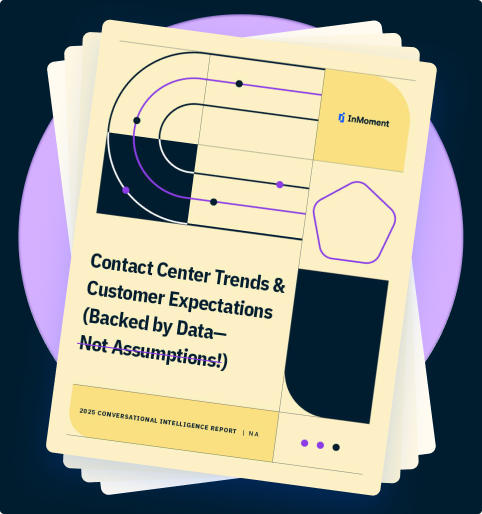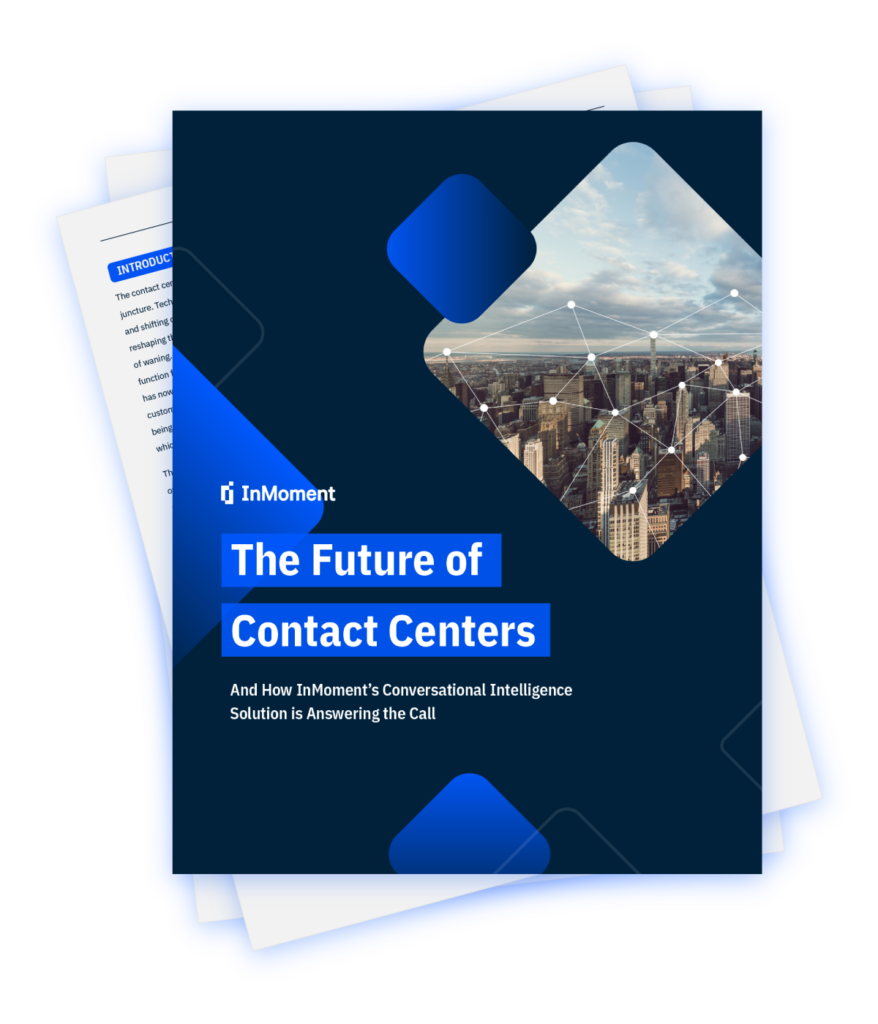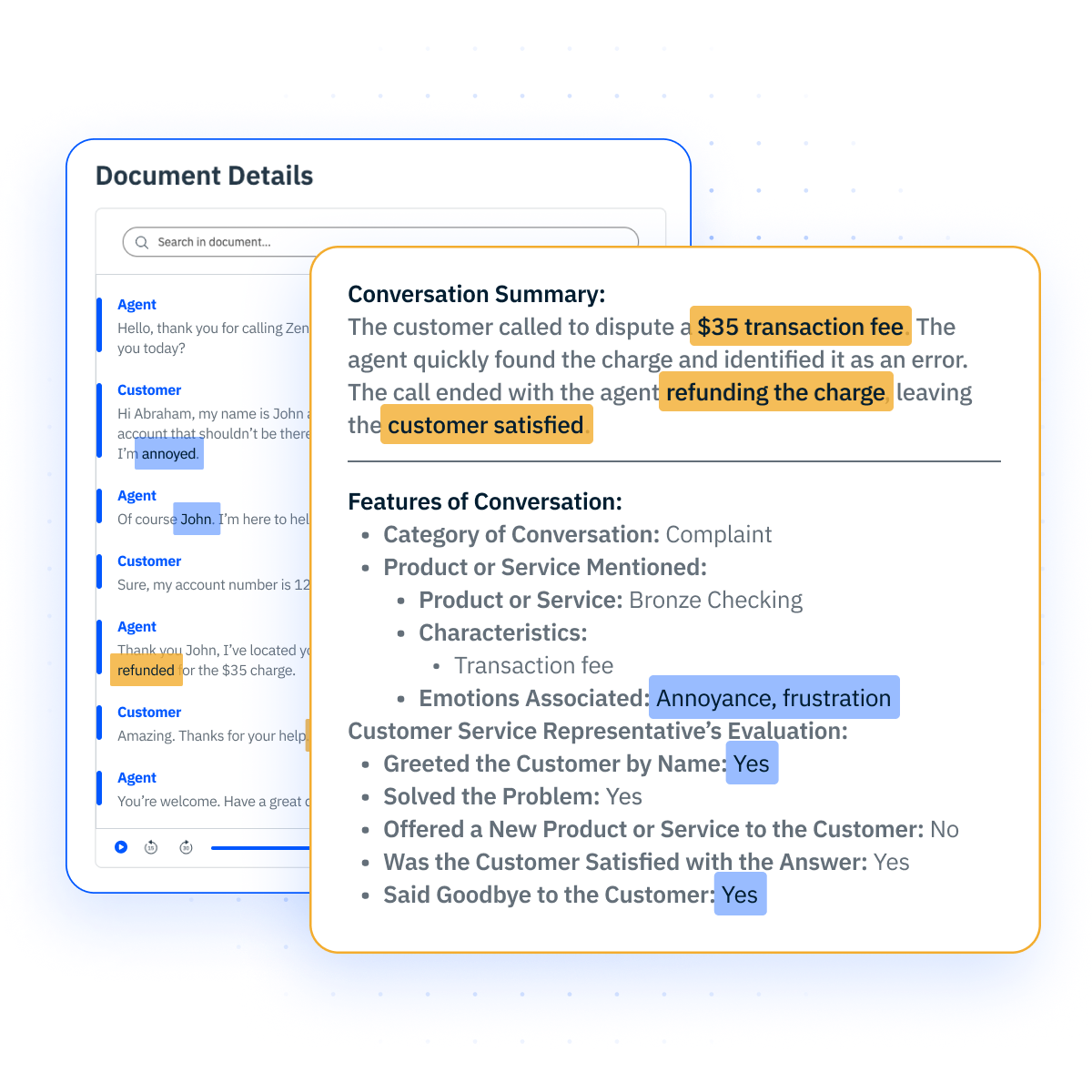4 Ways AI can Empower Contact Center Agents
Contact center leaders have agonized over the decision of whether or not to utilize artificial intelligence (AI) over the traditional human approach to customer experience (CX) since the introduction of this innovative tech. However, in a recent CustomerThink webinar, I proposed that it isn’t an either/or choice between AI and agent; instead, I believe it is vital to think of AI as an enabler for customer experience, not a replacement.
Contact center leaders have agonized over the decision of whether or not to utilize artificial intelligence (AI) over the traditional human approach to customer experience (CX) since the introduction of this innovative tech. However, in a recent CustomerThink webinar, I proposed that it isn’t an either/or choice between AI and agent; instead, I believe it is vital to think of AI as an enabler for customer experience, not a replacement.
My segment of the webinar was called “Harness AI to Grow High-Value Human Relationships.” In it, I explained that AI especially enables the core of CX—the human element—and makes the relationships that result from human interactions more effective by arming contact center leaders and agents with the information and feedback they need to make a positive impact.
Sounds pretty great, right? If it does, you’re probably asking how you can use AI in your contact center to get these results. Well, here are four specific ways artificial intelligence can empower contact center agents to improve the customer experience:
Execute Real-Time Solutions
AI-powered humans essentially have information about their customer at their fingertips. With each call, AI can help decode customer thoughts, sentiments, and opinions about the interaction with the call center agent. After analysis, AI then can store all of this data specific to each agent and mine it for trends and other insights. The difference? Each call center agent gets personalized feedback on exactly what they did right and what they can do better in specific interactions with their customer. Even better, the “customer coaching” is feedback they get is based on recent interactions and is ongoing, so they can constantly improve in real time.
Create Personal Interactions
When contact center agents are powered by AI, they get the personal feedback that allows them to better relate with their customers. Customers themselves have said that when their contact center agents have access to AI generated information—such as information on previous interactions, interaction preferences, or insights from speech analysis—their interactions are more personal and relevant. Simply having the knowledge that a customer is frustrated allows agents to respond in a human, compassionate way and therefore create a relationship with that customer.
Get Specific
We have also found that having access to AI-generated data helps agents to have better recall. They can more accurately remember recent conversations or feedback so they can take an informed approach when solving customer problems. Agents also get a sense of expertise when it comes to recurring customer situations because they know they have been there before and have the feedback data to determine the best approach.
Gain Proof of Accomplishment
Here’s a not so pleasant truth: before AI, coaching for agents had a negative bias. It was constantly looking for a chink in the armor when it came to an agent’s approach. While I agree that it is important for agents to constantly improve, it can be hard for them to do so if they feel like they’re constantly doing something wrong. Contrary to the negativity, we find that 80% of feedback is positive, so it is best to acknowledge that good in order to empower contact center agents. AI can help agents see what they’re doing well and gain a sense of ownership over their feedback. This gives them the motivation they need to take that other 20% and turn the negatives to positives.
Ultimately, AI helps contact center agents become an active participant in customer interactions (rather than a victim), have more control over their individual coaching, and feel more empowered to improve. When their work has obvious meaning, agents can appreciate their impact on other humans and create loyalty-driving relationships everyday.




